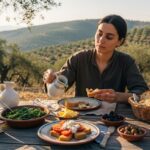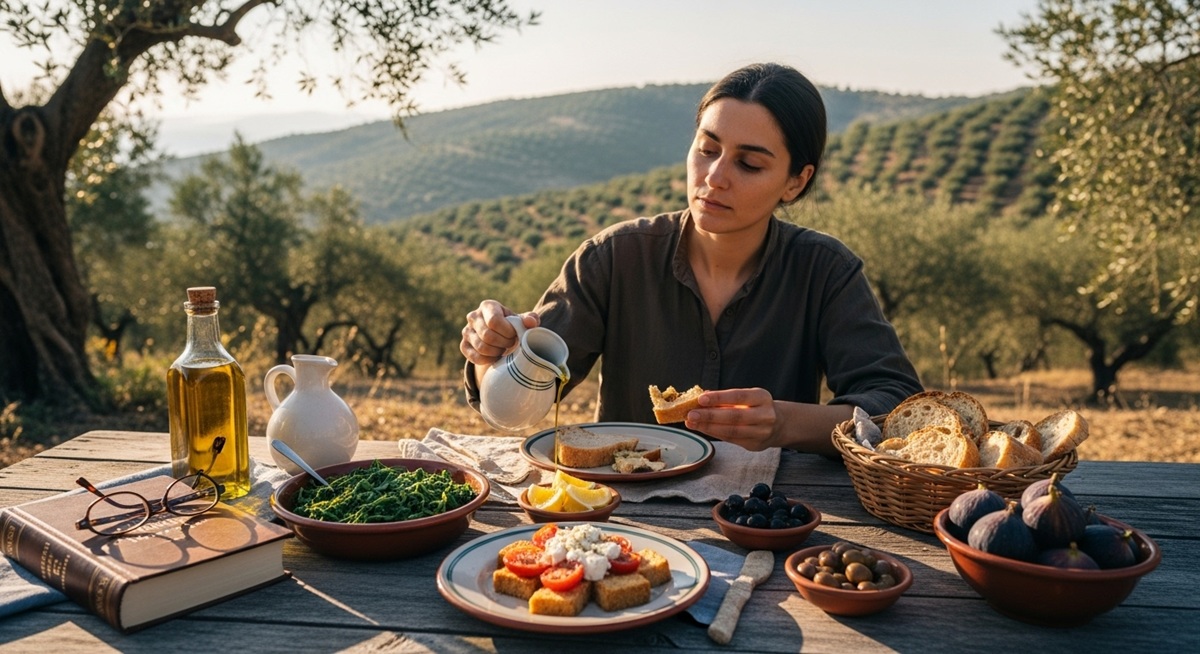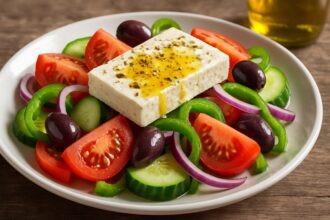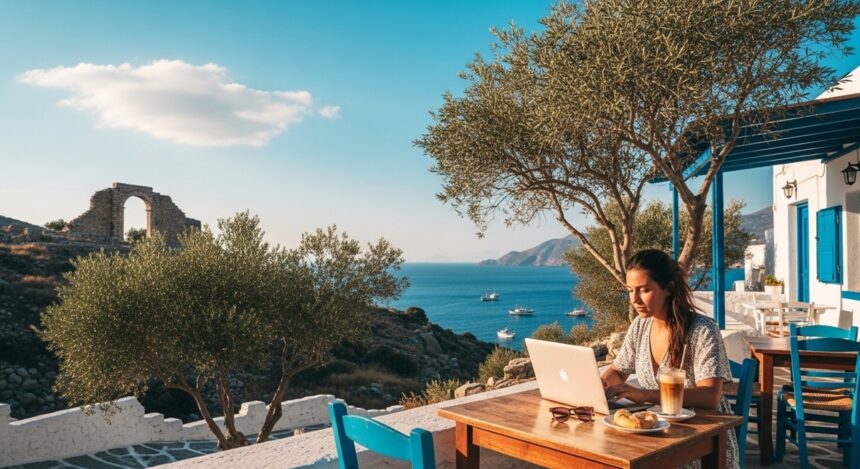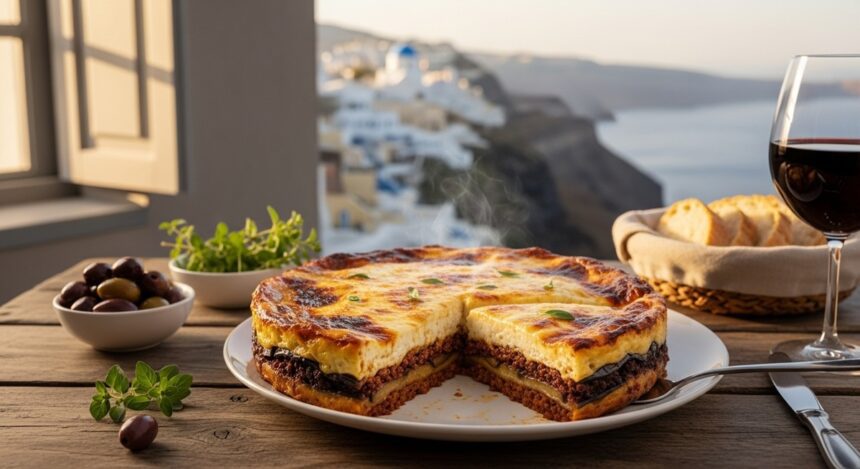Imagine yourself wandering through sun-drenched olive orchards, the air laced with the scent of wild herbs, as you uncover a profound connection between Stoicism and Greek cuisine. It’s an immersive exploration that transforms every meal into a lesson in resilience, gratitude, and presence. Welcome to a guide that marries the timeless teachings of Marcus Aurelius, Epictetus, and Seneca with the hearty, soul-satisfying dishes of the Hellenic world. By embracing mindful eating, you’ll not only delight your palate but also cultivate a deeper sense of well-being, turning travel into a path of personal enlightenment.
In our fast-paced era, where meals are often rushed and forgotten, rediscovering the art of eating through a Stoic lens offers a refreshing antidote. Greek cuisine, rooted in simplicity and seasonality, mirrors the philosophy’s emphasis on living in harmony with nature. Imagine biting into a ripe fig or drizzling olive oil over fresh bread—not just for sustenance, but as a deliberate act of appreciating life’s essentials.
The Essence of Stoic Eating: Philosophy on Your Plate
At its core, Stoicism teaches that true happiness stems from within, unaffected by external chaos. For the ancient sages, even the act of eating was a canvas for practicing self-mastery. It wasn’t about gourmet extravagance or strict denial but about intentional choices that foster balance and contentment. In Greece, where the Mediterranean diet has long been hailed for its health benefits, this philosophy finds a natural home in everyday meals.
Embracing Simplicity: The Foundation of a Stoic Meal
As Seneca wisely noted, “It is not the man who has too little, but the man who craves more, that is poor.” This sentiment echoes through the humble staples of Greek cuisine. Far from the opulent feasts of myth, traditional Greek eating revolves around what’s abundant and unpretentious, ingredients that sustain without excess.
Consider the iconic olives and olive oil, often dubbed the “liquid gold” of the Aegean. These aren’t mere condiments; they’re symbols of endurance, thriving in arid soils much like a Stoic withstands life’s trials. Drizzle extra virgin olive oil over a slice of crusty bread, and you’re engaging in a ritual of gratitude for nature’s resilience. Health-wise, it’s packed with antioxidants, supporting heart health and longevity, aligning perfectly with Stoic ideals of caring for the body as a vessel for the soul.
Then there’s the world of legumes and grains, forming the backbone of dishes like faki (a warming lentil soup) or revithada (slow-cooked chickpea stew). These meals, born from peasant traditions, embody sufficiency. They’re fiber-rich, protein-packed, and incredibly versatile, reminding us that true nourishment comes from the earth’s steady gifts rather than fleeting luxuries. In a Stoic practice, preparing such a dish encourages reflection on interdependence—how soil, sun, and rain conspire to provide.
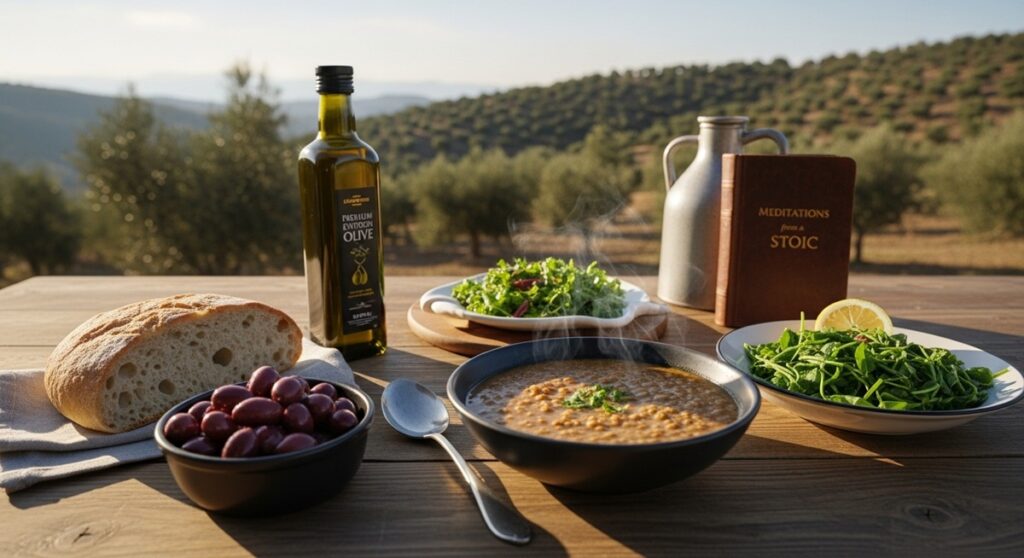
Don’t overlook wild greens, or horta, foraged from rugged hillsides. These bitter leaves, boiled and dressed simply with lemon and olive oil, teach humility. Foraging them yourself during a hike in the countryside fosters a direct bond with the land, mirroring Epictetus‘s call to focus on what’s within our control. Nutritionally, they’re a powerhouse of vitamins and minerals, promoting detoxification and vitality, a practical extension of philosophical wisdom.
Cultivating Presence: The Art of Mindful Consumption
Marcus Aurelius reminded us, “You always have the choice not to do a thing, and the choice to do it.” Applied to eating, this translates to mindful eating—a deliberate pause in our hectic lives to truly engage with our food.
Start by savoring each bite. In a bustling Greek taverna, resist the urge to scroll on your phone; instead, notice the crunch of a cucumber in a Greek salad, the tang of feta cheese, or the herbal notes in a grilled fish. This presence heightens enjoyment and prevents overindulgence, a vice Stoics equated with slavery to desires.
Gratitude amplifies the experience. Trace your meal’s origins: the farmer who harvested the tomatoes, the sea that yielded the octopus. Such reflections, perhaps shared over a communal table, build empathy and contentment, turning dining into a meditative act.
Moderation is key—eat until satisfied, not satiated. Stoicism warns against gluttony, and in Greece, portions are naturally balanced. Opt for meze-style sharing plates, where variety trumps volume, encouraging self-control while fostering social bonds.
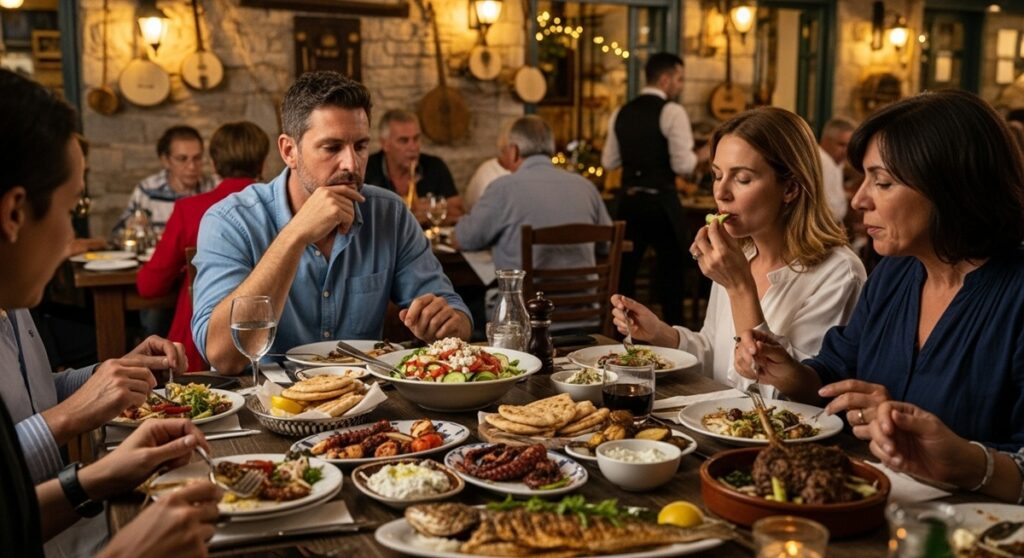
Expanding this, incorporate sensory awareness. Feel the warmth of a fresh pita, inhale the aroma of oregano-spiced lamb. Over time, this practice reduces stress, improves digestion, and aligns with modern mindfulness techniques, proving Stoicism‘s enduring relevance.
Discovering Authentic Flavors: Where to Experience Stoic Cuisine in Greece
To live these principles, immerse yourself in Greece’s culinary landscapes. Venture beyond tourist hotspots to places where Greek cuisine remains pure and philosophical insights abound.
Hidden Gems: Rustic Tavernas and Timeless Villages
The soul of Stoic eating thrives in unassuming spots. In the Peloponnese region’s mountains, like the villages of Dimitsana or Stemnitsa, family-owned tavernas serve hyper-local fare. Picture a stone-walled eatery where the menu changes with the seasons: summer brings vibrant tzatziki and grilled vegetables, while winter offers comforting stifado (beef stew with onions). Here, conversations with locals about ancient lore add layers of depth, embodying Stoic community.
Further south, Crete‘s inland hamlets, such as Anogia or those in Sfakia, showcase the renowned Cretan diet. Rich in wild greens, legumes, and unique cheeses like mizithra, these meals are blueprints for longevity. Hike to a remote taverna for dak os (barley rusks topped with tomatoes and cheese), and feel the connection to ancestors who lived simply yet fully.
On the islands, like Naxos or Ikaria—known for its Blue Zone status—tavernas emphasize foraged ingredients. Try dolmades (stuffed grape leaves) made with wild vines, a nod to resourcefulness and acceptance of nature’s cycles.
Hands-On Wisdom: Markets and Culinary Workshops
As Epictetus might say, true knowledge comes from action. Dive into laiki agora (farmers’ markets) in cities like Athens or Thessaloniki. Amid the chaos of vendors hawking figs, artichokes, and honey, practice discernment—select only what’s needed, honing self-control. These markets are sensory feasts, teaching seasonality: spring’s tender asparagus, autumn’s chestnuts.
For deeper engagement, join traditional cooking classes. In regions like the Cyclades or Macedonia, learn to craft gemista (stuffed peppers and tomatoes) or spanakopita (spinach pie). Kneading dough or chopping herbs becomes a meditative exercise, building skills and patience—core Stoic virtues. Many classes incorporate storytelling about philosophical influences, enriching the experience.
Extend this to agritourism stays on farms in Epirus or Thrace, where you harvest olives or make cheese, forging a tangible link to the land’s bounty.
Serenity in Simplicity: The Stoic Picnic Tradition
Nothing captures apatheia—equanimity amid life’s flux—like a picnic. Assemble basics: feta, olives, bread, and wine from a local market. Seek solitude in nature for reflection.
At Delphi, after pondering the oracle’s ruins, picnic overlooking the valley, letting the landscape inspire thoughts on fate versus free will.
Near Cape Sounion, as twilight gilds the Temple of Poseidon, your modest meal becomes a symphony of senses, free from distractions.
In the Meteora monasteries or Mount Olympus trails, such outings build resilience, embracing weather’s whims as Stoic training.
Injecting Stoicism into Your Greek Odyssey
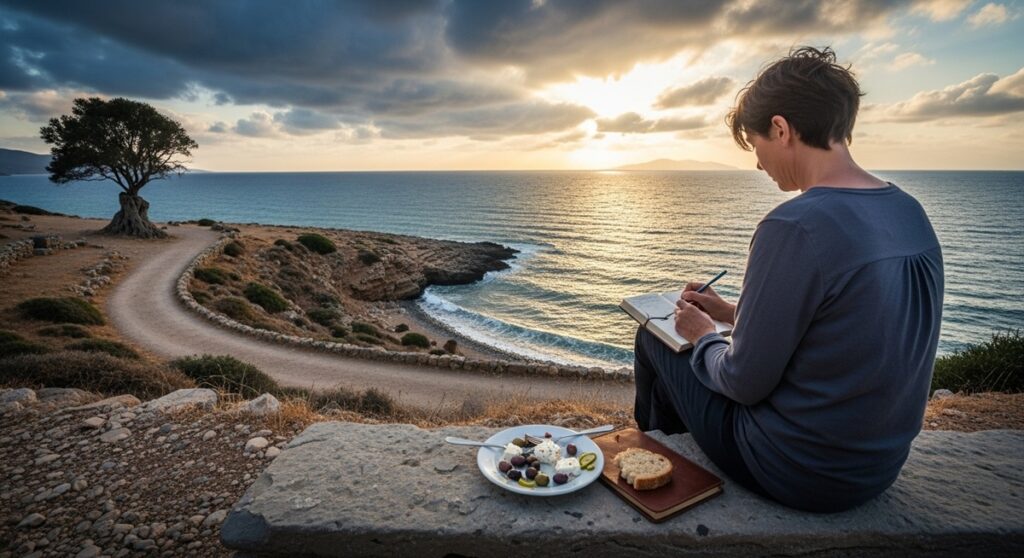
This fusion of Greek cuisine and Stoicism extends beyond plates, reshaping your entire journey.
Embrace voluntary discomfort: Trek dusty paths to remote beaches or stay in Spartan guesthouses, viewing challenges as growth opportunities.
Practice acceptance: Flight delays or rainy days? Focus on your response, channeling Marcus Aurelius‘s calm.
Daily reflection: Journal post-meal insights—what flavors evoked gratitude? How did moderation feel? This self-examination sharpens virtue.
Incorporate movement: Walk ancient paths while musing on philosophy, pairing physical health with mental clarity.
Ultimately, this approach turns Greece into a transformative retreat, where mindful eating and Stoic principles foster lasting peace.
Nourishing Body and Soul
By weaving Stoicism into your exploration of Greek cuisine, meals become gateways to wisdom. In a world of excess, this path offers balance, reminding us that true richness lies in mindful appreciation. Let Greece’s flavors guide you toward a more intentional life—one bite, one breath at a time.


